A Thauma-what? Defined as a “miracle worker or a magician”, a Thaumaturge is someone with the ability to use supernatural powers.
In this game, the protagonist is Wiktor (pronounced “Victor”) Szulski, who is a Thaumaturge and has the ability to capture and tap into the powers of supernatural beings known as salutors.
The Thaumaturge is an investigative game played in an isometric perspective, featuring turn-based combat and some elements of role-playing.
Set in 1905 in Warsaw during the Russian Revolution, The Thaumaturge is full of old world charm with a moody aesthetic rife with political tensions. At that time, Poland was controlled by Russia and workers were going on strike to overthrow the Russian military.
It is in this unsettling setting that our protagonist returned to Warsaw to attend his estranged father’s funeral and reconnect with his family and friends, and investigate unnatural occurrences using thaumaturgy.
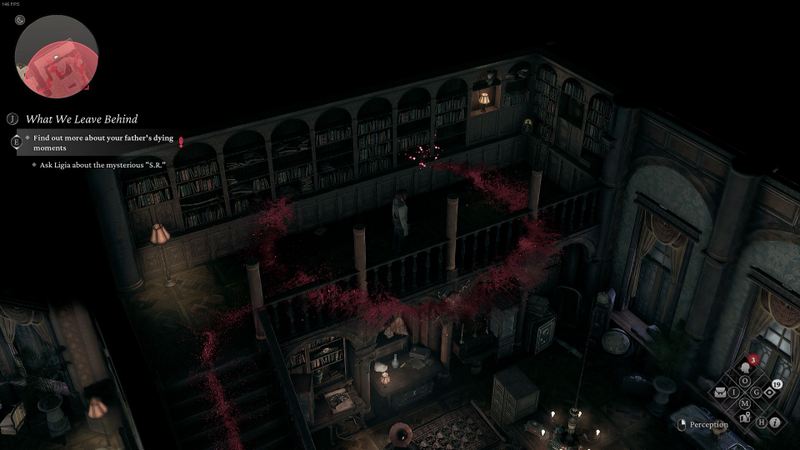
Pride and prejudice
Every action has consequences in The Thaumaturge. The game’s dialogue options differ on the choices you make, how you treat the character you are speaking to, and whether you have managed to uncover certain clues to offer additional dialogue branches.
Certain lines of questioning and responding can close off opportunities to pursue different conversations and outcomes. There are also options for being nicer to people or being a jerk, which will affect how they will respond to Wiktor later in the game.
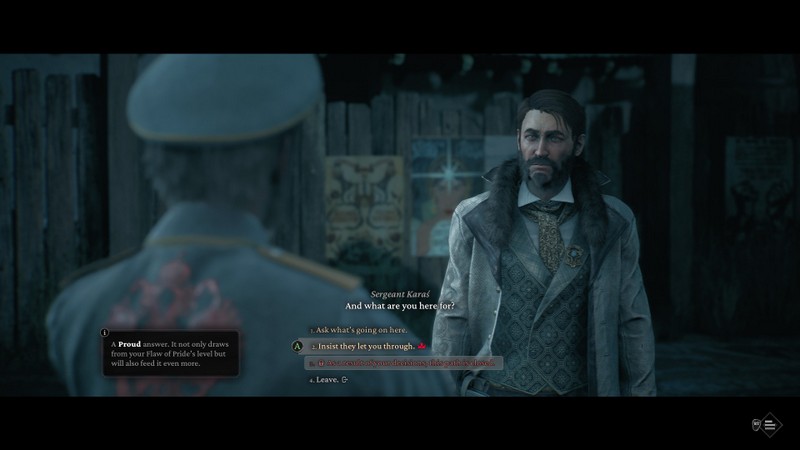
Wktor’s main character flaw is Pride, which can be increased or kept in check by the dialogue options you choose. You can feed Wiktor’s flaw by choosing responses that are proud, but there will be irreversible consequences that can impact the story and the ending. This offers some replayability in seeing how people and events can change due to Wiktor’s responses.
Wiktor starts with one salutor, known as Upyr, who has been with Wiktor since he was a boy and is a trusted friend. At the start of the game, Wiktor had lost connection with Upyr, and had to find a way to reconnect with his salutor again. Thereafter, Wiktor frequently confides in Upyr and engages in one-sided conversations with him.
Despite his scary looks, Upyr is an endearing companion, and shows Wiktor flashbacks of his past in Warsaw, which gives the player more perspective into Wiktor’s character and his backstory.
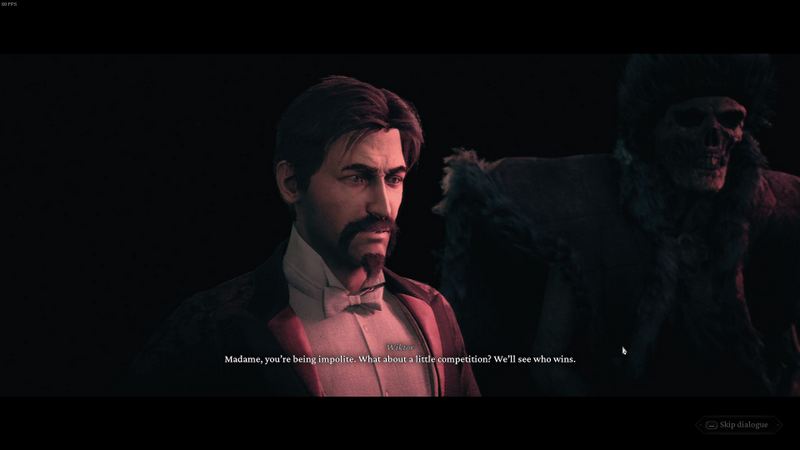
Wiktor is able to examine objects and derive emotions and thoughts of the last person in contact with the item. With a grimoire attached to his belt for accessibility, Wiktor uses it often to harness the powers of perception and the abilities of his salutors in solving mysteries, manipulating people and beating foes during combat.
With Wiktor being a member of the bourgeoisie, the game highlights themes such as the class divide where workers and the poorer citizens struggle for equality and justice, as well as the prejudice against members of the elite.
Adding to the tense situation is the Polish working class opposing the Russian rule and the Okhrana (Russian Empire’s secret police) on the lookout for subversive activities.
Explore and exploit
The game takes place mainly in the various districts of Warsaw, and there are buildings that can be entered for even more exploration. With clues that appear only when quests are activated, there is quite a bit of going back and forth around Warsaw to complete the main story missions and side quests.
Thankfully, Wiktor can easily fast-travel in the form of trams and horse carriages across Warsaw, and there is no chance of getting lost since you can select the active quests and even subquests, and use Wiktor’s perception power to navigate there.
There are events that occur at certain times of the day, which means some waiting and passing time on benches is required to trigger the sequence of events.
Some optional quests are also timed, which means they can lapse once you have advanced further into the main story missions. Thankfully, the game is thoughtful enough to give prompts which the completist in me really appreciates.
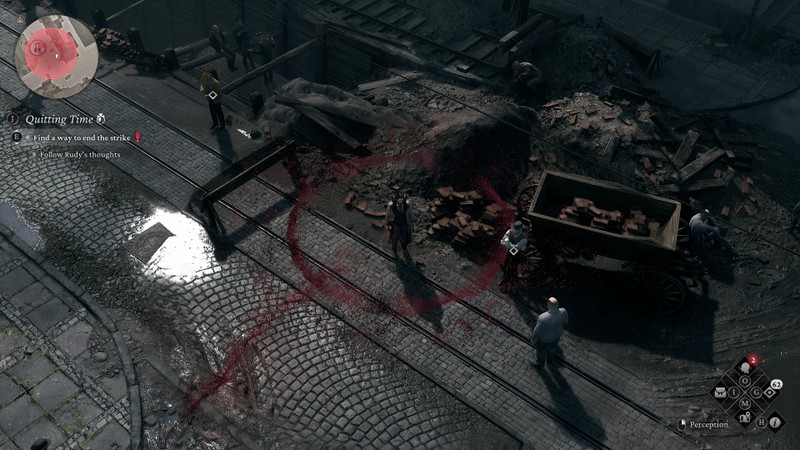
Be prepared for loads of reading in the game — most of the clues you find are in the form of newspapers, notes, diaries, letters and the like. Even when the mystery is solved, the conclusion also needs to be read to fully appreciate the mystery.
In addition, Wiktor keeps an exceptionally detailed journal as well as dossiers of all characters and salutors, case files and copious notes. They provide plenty of details and more reading!
What I found delightful about The Thaumaturge is its witty dialogue, intriguing characters and clever clues that make it enjoyable for gamers who enjoy investigating and exploring.
The game also makes chuckle-worthy references to popular culture, puns and innuendos, making it worthwhile to take your time to appreciate all the conversations and exchanges. There is even a reference to Pokémon, which made me laugh out loud!
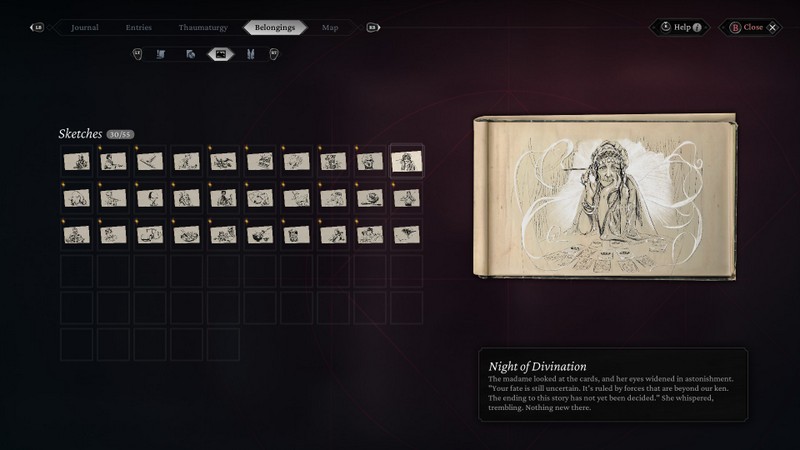
The Thaumaturge offers plenty of side quests, discoveries and collectibles. Some discovery side quests involve uncovering activities around Warsaw and rewarding you with experience points and a collectible sketch.
Although some activities can be somewhat frivolous, such as trying out a new sport, attending a musical or artistic performance, admiring viewpoints and even paying a visit to a new litter of puppies, they are quite enjoyable and charming. Completists have a reason to experience them all.
Although lacking in real-time action and having plenty of reading to do, The Thaumaturge’s gripping story, clever mysteries, morally ambiguous characters, detailed world building and immersive atmosphere makes it stand out from the crowd.
Conjure and conquer
The Thaumaturge’s turn-based combat using the various salutors is sophisticated and strategically well-varied.
Different salutors have different powers and effects on the foes — some can heal Wiktor after a successful attack, others can cause damage after every round, and there are also those that can impose certain states to weaken the enemy and make them more vulnerable to subsequent attacks.
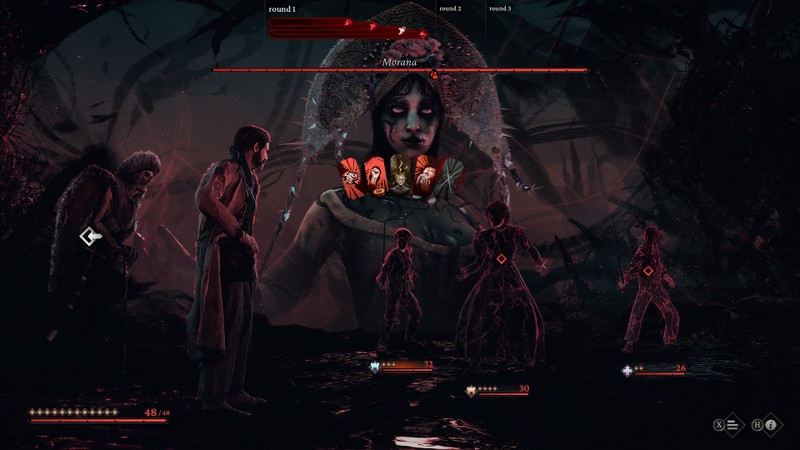
The skill tree is split into four main branches — heart, mind, deed and word. Certain clues might be undecipherable to Wiktor if he does not have a high enough level in a requisite skill.
The skills can only be advanced after a salutor of the corresponding trait is captured and tamed, which means that Wiktor should try and capture all possible salutors even though some are optional.
Combat takes place in a turn-based format, where you can pick your salutor and use their various powers against your foes. Some attacks are slower than others, so there is some strategy involved in how you plan to use Wiktor’s attacks versus the salutor’s powers, as the attack is cancelled when the targeted foe is beaten.
For instance, if you are hoping to have the Upyr’s slow attack top up your health, you need to target a foe that is not likely to die in the next two rounds otherwise Upyr cannot attack and you will not get healed.
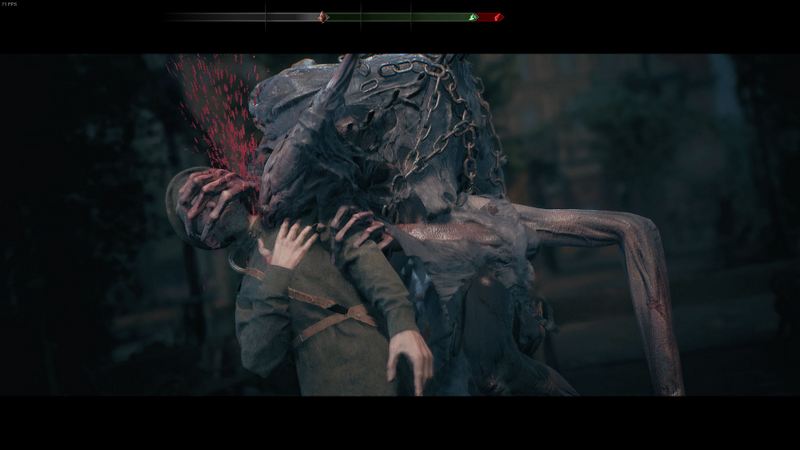
While the objective of the combat is to whittle away at your enemies’ health, there are also attacks that can lower their focus, leaving them open to more devastating attacks.
Certain salutors, like the bird-like Lelek, specialises in wearing down your enemies’ focus and can even transfer any negative status from Wiktor to the enemies.
This is especially useful for foes who are able to heal after every round, and simply causing damage to them will not beat them.
Apart from gaining new salutors and unlocking new attacks through the skill tree, you can also upgrade Wiktor’s combat moves with additional attributes, such as speed, defense and status effects. A skilful blend and combination of these tactics is essential later in the game as the foes become tougher to beat.
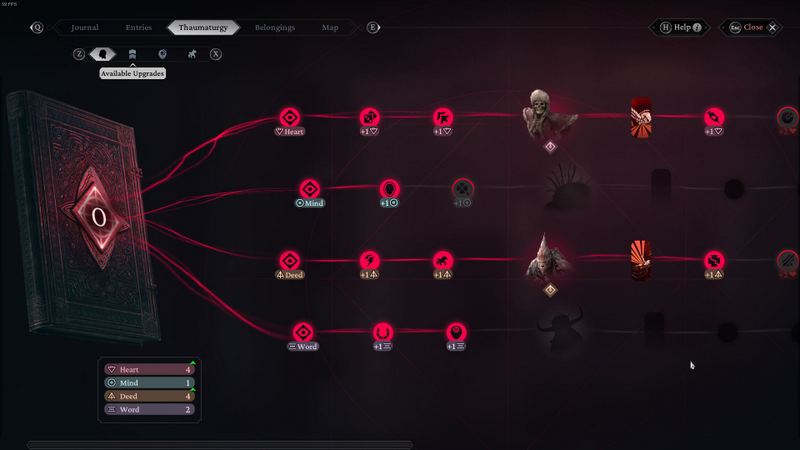
The Thaumaturge’s graphics are beautifully detailed for an isometric game, with realistic lighting for different times of the day, and for indoors and outdoors.
There are also cool visuals for the dense fog that blocks your path and beautiful water effects whether in puddles, rivers or rain. The animations of the salutors’ attacks are impressively fearsome, which makes combat very rewarding especially when you see a salutor dealing devastating damage to your enemy.
The Thaumaturge features a generous dose of cinematic cutscenes featuring excellent voice acting to tell the tale.
For gamers who enjoy making cosmetic enhancements to the protagonist, Wiktor’s hairstyle and beard can be changed at the barbershop, and new apparel for Wiktor can be unlocked at the tailor’s when you find fashion magazines scattered around Warsaw.
I found the game to be quite polished overall, and runs well on my PC and Steam Deck. I did experience the game crashing to desktop a couple of times on my PC, and also spotted some errors in the subtitles, but these did not detract from my enjoyment of the game.
With its mature themes, strong language, violence and gore, The Thaumaturge is not a game for young gamers, who might find the lack of action and copious amount of reading a bore anyway.
TL;DR
The Thaumaturge is a refreshing investigative game with a supernatural twist, set in a rich atmosphere full of old world charm.
The cleverly written story, convoluted investigations and engaging characters provide a fascinating in-depth study of the events during the turn of the 20th century in Warsaw. The sophisticated turn-based combat that tap on the supernatural powers of the salutors lends an intriguing dimension to the gameplay.
If you love playing detective and investigative quests, enjoy working alongside nightmarish companion characters and are not put off by a lot of reading, The Thaumaturge is defeinitely worth your time.
And if you love collectibles, The Thaumaturge has plenty of side quests that reward you with charming collectable sketches and fancy apparel for Wiktor.
The Thaumaturge is available for Windows PC on Steam at S$29, but there is a sale now until 24 April and it’s a steal at S$23.20 for over 20 hours of enjoyable investigative gameplay.






